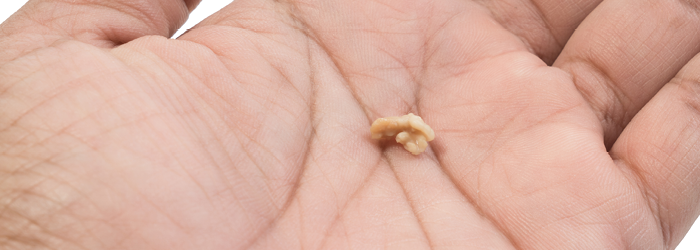Your tonsils play a critical role in protecting your overall health. They serve as an important first line of defense by helping filter bacteria and viruses before they enter your throat. However, they can be compromised by buildup that may ultimately lead to tonsil stones.
What exactly are tonsil stones?
Tonsil stones, also known as tonsilloliths, are calcified clumps that form when "food, bacteria, minerals such as calcium, and other debris, like dead cells and mucus" get trapped in the sponge-like pockets of your tonsils. These tonsil stones typically manifest as small white or yellow pebbles embedded in your tonsils.
Tonsil stones can vary in size but are often only a few millimeters, although one of the largest tonsil stones measured was 4.2 × 3.6 × 2.1 centimeters.
Common symptoms of tonsil stones
Perhaps the only convenient thing about tonsil stones is that most of the time, you'll know you have them. This makes it easier to detect and treat early.
Often, people with tonsil stones feel a persistent sensation of something lodged in the back of the throat. According to the Cleveland Clinic, other symptoms may include bad breath, difficulty swallowing, a sore throat, coughing fits, and earaches.
What to do if you have tonsil stones
It’s important to let your dentist know if you’re experiencing any symptoms of tonsil stones so they can advise you on the best way to treat them and monitor for recurrence. The good news is getting rid of tonsil stones doesn't typically require extensive treatment and can often be taken care of at home if symptoms are minimal. Gargling with warm salt water is recommended to try and loosen the stone initially and to help clear out any bacteria afterward.
If gargling doesn't work, gently nudging the stones out with a wet cotton swab may help.
If that doesn't work, professional assistance may be necessary for the treatment and removal of tonsil stones. Visit your dentist if:
- You’re experiencing extreme discomfort
- They fail to fall out naturally
- At-home remedies prove ineffective
- Tonsil stones continue to form
If you think you might have tonsil stones that can't be treated at home, schedule an appointment with your dentist.


